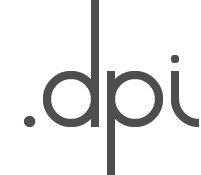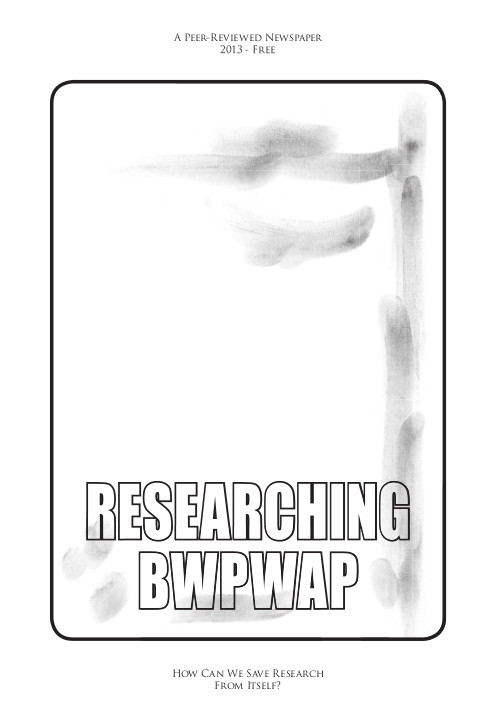Olga Goriunova (ed.): Readme 100: Temporary Software Art Factory (2006)
Filed under book, catalogue | Tags: · art, market, software, software art, software studies

“This book discusses projects and research completed in the framework of the Readme 100 Temporary Software Art Factory, which took place in Dortmund in November 2005 and was co-organized by Hartware MedienKunstVerein.
It deals with the topic of production as it relates to software, software art and software cultures. Thus, it focuses not only on software as a product itself, but also on the experiment of its production through methods including outsourcing, use of open source solutions and self-production. Topics addressed include economies of arts, desire and openness, harmony of markets, the unmarketable, reverse outsourcing, resistant mapping and others.
The result is a multi-faceted collection of project descriptions, illustrations, research texts and features relating to the theme of software art production.”
Authors include: Amy Alexander, Inke Arns, Christophe Bruno, Javier Candeira, Yves Degoyon, Elpueblodechina, Olga Goriunova, Francis Hunger, Sven Konig, Eric Londaits, Alessandro Ludovico, Ilia Malinovsky, Alex McLean, Special guest, Julian Rohrhuber, Alexei Shulgin, Leonardo Solaas, Mitchell Whitelaw, Renate Wieser.
Publisher Hartware MedienKunstVerein, Dortmund, 2006
ISBN 3833443693
168 pages
PDF (updated on 2016-12-23)
Comment (0).dpi, Feminist Journal of Art and Digital Culture, 27: Hacktivism (2013) [English/French]
Filed under magazine | Tags: · art, feminism, floss, hackerspace, hacking, hacktivism, software, technology

“Founded by artist-run-centre Studio XX in 2004, in Montreal, the publication .dpi has recently undergone a major transformation in order to assert itself as a feminist journal of art and digital culture. In 2013, with continuing administrative and technological support from Studio XX, the journal .dpi became an independent project, with a new platform (beta version) and new team including permanent editor in chief, Sophie Le-Phat Ho, and a new editorial committee composed of Julie Alary Lavallée, Amber Berson, Esther Bourdages, Christina Haralanova, Corina MacDonald, Katja Melzer, Candace Mooers and Deanna Radford.
In a time when social gains are threatened, funding for artist-run-centres is precarious, and the need for intelligent critique is urgent, the new crew at .dpi wishes to respond to a real need for the creation of an interdisciplinary community of those at once curious and critical of technologies, feminisms and art.
Bringing together a dozen local and international participants, .dpi 27 presents a themed section on hacktivism coordinated by Christina Haralanova, a feminist activist and researcher who is interested by freedom in technology and open-source software. Hacktivism: the Art of Practicing Life and Computer Hacking for Feminist Activism brings together unique perspectives and critiques of the current state of hacktivism, a fusion of hacking and activism.”
Published in Montreal, April 2013
ISSN 1712-9486
View online (HTML articles, English)
View online (HTML articles, French)
Download h4x0rd version of the issue by Linda Hilfling (PDF, leetspeak English)
View past 26 issues (English)
View past 26 issues (French)
A Peer-Reviewed Newspaper, 2(1): Researching BWPWAP (2013)
Filed under journal | Tags: · art, artistic research, code, design, economy, education, media art, net art, software

“In referring to the cancellation of Pluto’s planetary status in 2006, BWPWAP (Back When Pluto Was a Planet) – the 2013 edition of the transmediale festival – interrogates techno-cultural processes of displacement and invention, and asks for artistic and speculative responses to new cultural imaginaries. In light of this, the conference and workshop Researching BWPWAP took place in November 2012 in Lüneburg, Germany, organised jointly by Leuphana University of Lüneburg, Aarhus University and the reSource transmedial culture/transmediale. The call for participation focused on Ph.D. researchers and other participants to speculate on BWPWAP as a pretext for presenting their research and even to further reflect on its circulation as a meme.
This newspaper presents some outcomes of this process, and like the conference and workshop, can be interpreted in the context of a research culture that has been significantly destabilized by network culture and digital media. If the planet Pluto didn’t exactly fall prey to an epistemological break or a scientific revolution, but rather to a mundane administrative procedure – a redefinition of what constitutes a planet – then what does this say about contemporary research culture? Certainly, much research culture has shared Pluto’s fate: conferences reduced to networking events to foster cultural capital, and scholarly communications reduced to impact factors measured by grant givers. In other words, research is not just about measuring the performativity of a single researcher (the peer-reviewed journal system), but also the processes of questioning, investigating, speculating, and sharing between peers in a broader sense.” (from the Editorial)
Edited by Christian Ulrik Andersen and Geoff Cox
Publisher Digital Aesthetics Research Center, Aarhus University, Aarhus, in collaboration with reSource transmedial culture Berlin/transmediale, Berlin, February 2013
Creative Commons Attribution-NonCommercial-ShareAlike license
ISBN 8791810256
ISSN 2245-7593
PDF, PDF (updated on 2018-9-20)
Comment (0)
